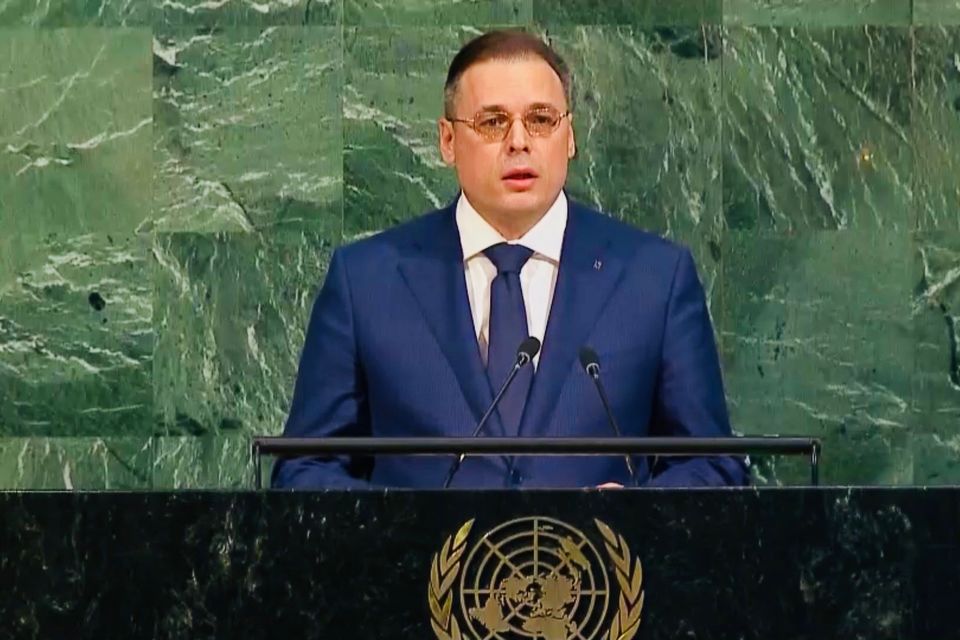Statement by General Oleh Frolov, Deputy Head of the Security Service of Ukraine, at the High Level Conference of Heads of Counter-Terrorism Agencies of Member States

Mr Chair!
Ladies and Gentlemen!
At the outset, on behalf of the Ukrainian delegation and the Security Service of Ukraine – the main Counterterrorist Agency of the country - I wish to express our gratitude to the UN Secretary General for the initiative to convene the first High-Level Conference of heads of counter-terrorism agencies of member states.
This forum is a unique platform for sharing expertise and best practices in the field of countering the global threat of international terrorism.
Few would doubt that terrorist and violent extremist ideologies, which are being propagated all over the world by terrorist organizations, such as ISIL, Al-Qaida as well as other associated groups and individuals, continue to pose a serious threat to international peace, security and stability. They undermine our core values and principles, including democracy, fundamental human rights, the rule of law and freedom.
The urgency of consolidating efforts for the purpose of suppressing international terrorism and violent extremism is clear. Moreover, it is important to recognize that these phenomena are very diverse in their nature. We are affected by constantly evolving tactics, techniques and procedures which vary depending on the objectives set forth by terrorist organizations and hostile actors to include rogue states.
Unfortunately, nowadays terrorism and violent extremism have become an existential threat for Ukraine putting its sovereignty and territorial integrity at stake.
It has been over four years since the aggressor-state launched extensive cross-domain hybrid warfare against our country, and by doing so blatantly violated legal international norms and principles, as well as security guarantees it offered before.
The propaganda component has been a key element of the hybrid aggression against Ukraine, which created fertile ground for employment of a range of other regular and irregular tactics involving the use of unconventional armed elements, inspiration of internal unrests, combined with diplomatic actions, cyberattacks and economic pressure.
In this context, the world-wide network is used for propagating violence, recruitment and financing terrorist-related criminal activity.
Although, our case proves that information and communication technologies are utilized to commit violent acts targeting sustained operation of the state machinery, as well as draining Ukraine’s financial and material resources.
A series of massive and complicated cyberattacks were launched against energy, banking, transport and telecommunication sectors – cynical in their nature and devastating as far as their consequences. This is yet another proof that cyberdomain will remain among the tools that the aggressor is using to achieve its geopolitical ambitions.
By concluding my statement, I wish to assure you that Ukraine is a strong supporter of the idea that information and communication technologies should be used solely as a tool for development and in accordance with the UN Charter. Constructive international dialogue built on the principles of mutual trust and respect for intentional law is a key to prevention and suppression of misuse of information technologies for terrorist purposes.
I thank you.
